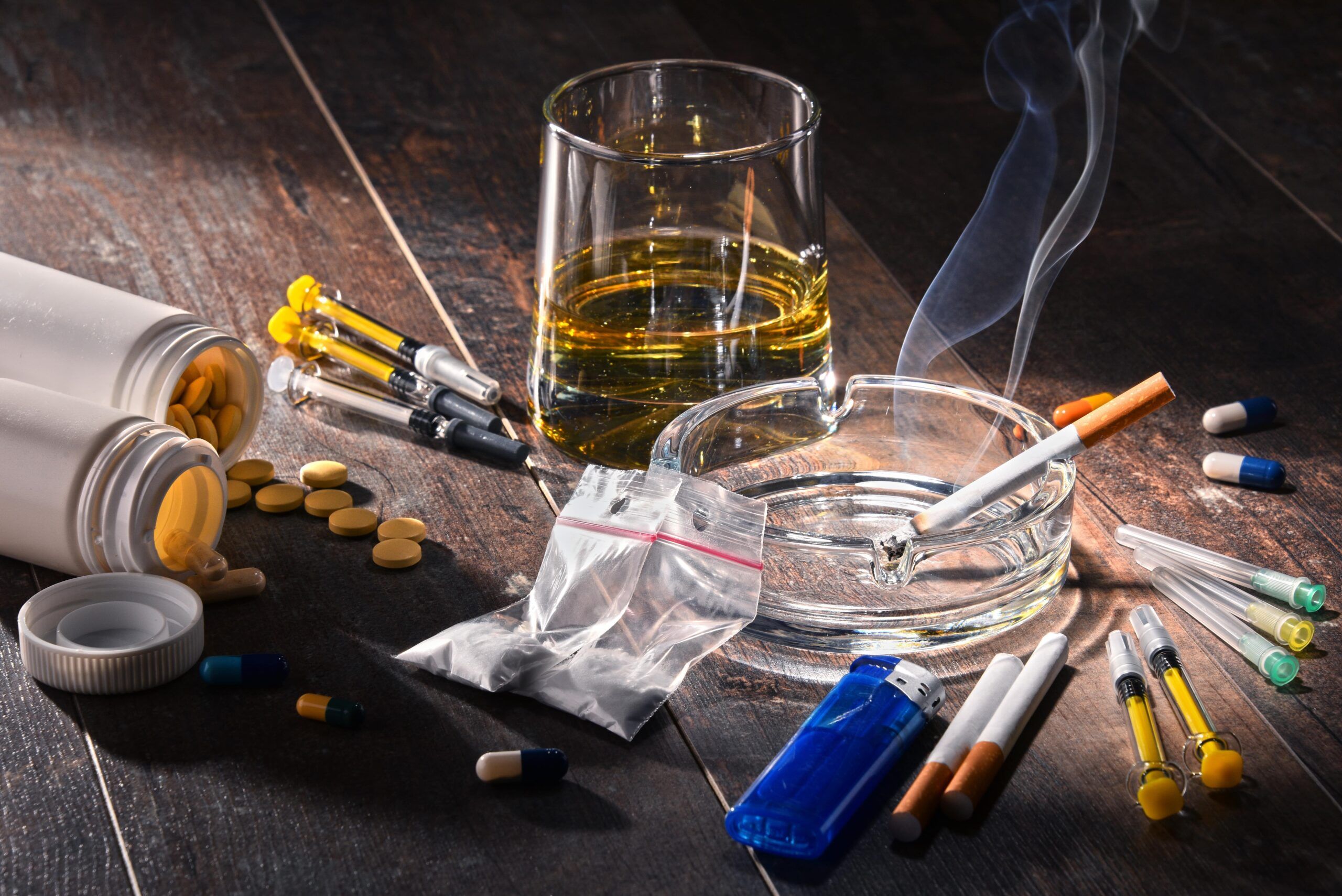
What is the Most Addictive Drug?
Some people can use alcohol and certain other substances without becoming addicted. For others, even minimal exposure to a drug leads to the development of a substance use disorder. Why does this happen? What makes drugs addictive – and what is the most addictive drug?
What Makes Drugs Addictive?
According to a report by the U.S. surgeon general, most addictive drugs trigger a flood of the neurotransmitter dopamine in an area of the central nervous system known as the basal ganglia, which controls functions such as learning and reward. The excess dopamine allows neurons in the basal ganglia to communicate more rapidly. Hence producing a sense of euphoria and other pleasurable effects.
Over time, receptors in the basal ganglia adapt to the presence of the substance, and they do not respond at the same level. This means that a person must use larger amounts of the addictive drug in order to achieve the desired effect.
The surgeon general also reports that changes in two other areas – the extended amygdala and the prefrontal cortex – may be responsible for the distressing effects a person feels when they try to stop using a drug that they have become addicted to.
This combination of a desire for pleasure and a fear of experiencing pain can trap a person in the downward spiral of addiction.
What is the Most Addictive Drug?
Asking what is the most addictive drug is a simple, straightforward request. Unfortunately, this question does not have a simple answer.
Many sources cite heroin (or opioids, which is the category that heroin belongs to) as the most addictive drug. Heroin and other opioids do, indeed, have a high risk of abuse and addiction. In addition, once a person becomes dependent on them, the distress of withdrawal can make it very difficult to stop using them.
Cocaine and methamphetamine are also commonly included in discussions about what is the most addictive drug. These substances both cause an intense rush, followed by a painful physical and emotional crash. This can prompt a person to abuse them multiple times. This can increase the odds that the individual will become addicted.
Given the millions of people who have become addicted to alcohol and nicotine, these two substances may also merit consideration as possible answers to this question.
Here are a few reasons why it’s so difficult to identify what is the most addictive drug:
- The signs and symptoms of addiction can be very different from one person to the next.
- It is impossible to accurately identify how many people have used a drug and how many have become addicted to it.
- Does “most addictive” refer to how quickly addiction occurs, or how difficult it is to overcome?
Ease of access and cultural acceptance can also influence rates of abuse and addiction. For example, in the United States, nicotine use and addiction were much more prevalent decades ago, when there were few laws restricting where and when people could smoke. On a related note, one of the reasons why some people in the U.S. find it so difficult to resist the compulsion to drink is because alcohol has been so thoroughly incorporated into so many facets of life.
Though it may be impossible to achieve universal consensus on what is the most addictive drug, it may be much easier to determine which substances should be included in an expanded list of the most addictive drugs.
List of the Top 10 Most Addictive Drugs
Here, in alphabetical order, are 10 substances that many experts would agree are among the world’s most addictive drugs:
- Alcohol
- Amphetamine
- Barbiturates
- Benzodiazepines
- Cocaine
- Heroin
- Marijuana
- Opioid Agonists
- Methamphetamine
- Nicotine

Dangers of These Addictive Drugs
When someone abuses these addictive drugs, they can expose themselves to immediate and long-term harm.
The types of dangers that can result from addictive drugs can vary considerably from one substance to the next. These dangers can also be magnified by factors such as the individual’s age, gender, and metabolism; if they have a mental health condition; and if they have been engaging in polysubstance abuse (abusing multiple drugs at the same time).
Depending on these factors, here are some of the many potential negative effects that can result from the abuse of addictive drugs:
- Memory problems and other cognitive deficiencies
- Physical injuries due to impaired coordination and judgement
- Malnutrition and other health concerns due to poor self-care
- Damage to the heart, lungs, kidneys, liver, and other organs
- Onset or worsening of co-occurring mental illness
- Exposure to HIV/AIDS, hepatitis, and other bloodborne diseases
- Increased risk of certain types of cancer
- Legal problems, including being arrested, fined, and/or incarcerated
- Inability to get and keep a job
- Ruined relationships with friends and family members
- Financial devastation
- Social withdrawal and isolation
- Homelessness
- Suicidal thoughts and behaviors
- Overdose
- Death
It is important to understand that, contrary to a persistent myth, you don’t have to incur overwhelming damage (or “hit rock bottom”) before you can benefit from professional care. The moment you realize that you have a problem with alcohol, cocaine, heroin, or any other addictive substance, you can begin your recovery journey.
Get Help Today at Our Los Angeles Addiction Treatment Centers
Sanctuary Treatment Center is a respected provider of personalized care for adults who have become addicted to alcohol and other drugs. Treatment options at our rehab center in Los Angeles include detoxification, inpatient care, and outpatient programming. At every level of care, you can expect to receive customized services in a safe and respectful environment.
With the help of our skilled treatment professionals, you can end your substance abuse, regain control of your behaviors, and begin to live a healthier, drug-free life. To learn more or to schedule a free assessment, please visit our Contact Us page or call us today.


